Imagine a bard reaching for their instrument, seemingly about to buff a party member. Suddenly, an unnatural, dissonant melody echoes across the battlefield as the bard supports their comrade not with an inspiring tune, but via a chilling aria that speaks of long-dead specters!
Bards in the College of Spirits, a subclass introduced in Van Richten’s Guide to Ravenloft, are like leaders of a séance, weaving tales of creatures who have long since past from the Material Plane. When these singers open their mouths, spirits speak through them.
College of Spirits features
- Guiding Whispers: At 3rd level, when you join this college, you learn the Guidance cantrip and can cast it at a range of up to 60 feet. This increased range permits you to aid party members in situations you otherwise might be unable to, such as if they are scaling a cliff or are onstage putting on a performance. You can flavor this cantrip as you summoning a spirit to lend a hand.
- Spiritual Focus: You also receive a Spiritual Focus at 3rd level. This focus can take the form of a candle, crystal ball, ouija board, deck of tarokka cards, or a skull. The focus just adds flavor to this subclass until 6th level. At that level, when you cast a bard spell that deals damage or restores hit points through your Spiritual Focus, you can roll a d6 and add it to one roll of the spell.
- Tales from Beyond: The College of Spirits' bread and butter is the 3rd-level feature Tales from Beyond. As a bonus action, you can spend a Bardic Inspiration die to roll on the Spirit Tales table (shown below). Each tale has a different effect, ranging from teleporting targets to dealing psychic damage to enemies. You can retain one tale at a time and only until you either use the effect or finish a short or long rest. Using an action, you can bestow the tale’s effect on a target within 30 feet, including yourself. The tales are also prefaced with flavorful hooks that make for great roleplaying fuel. For instance, the psychic damage effect occurs when the bard orates a fable of an incomprehensible, mind-bending being. Perhaps the bard has communed with the deceased follower of an eldritch god from beyond the stars like Cthulhu!
Spirit Tales
| Tale Told Through You | Bardic Insp. Die |
| 1 | Tale of the Clever Animal. For the next 10 minutes, whenever the target makes an Intelligence, a Wisdom, or a Charisma check, the target can roll an extra die immediately after rolling the d20 and add the extra die’s number to the check. The extra die is the same type as your Bardic Inspiration die. |
| 2 | Tale of the Renowned Duelist. You make a melee spell attack against the target. On a hit, the target takes force damage equal to two rolls of your Bardic Inspiration die + your Charisma modifier. |
| 3 | Tale of the Beloved Friends. The target and another creature of its choice it can see within 5 feet of it gains temporary hit points equal to a roll of your Bardic Inspiration die + your Charisma modifier. |
| 4 | Tale of the Runaway. The target can immediately use its reaction to teleport up to 30 feet to an unoccupied space it can see. When the target teleports, it can choose a number of creatures it can see within 30 feet of it up to your Charisma modifier (minimum of 0) to immediately use the same reaction. |
| 5 | Tale of the Avenger. For 1 minute, any creature that hits the target with a melee attack takes force damage equal to a roll of your Bardic Inspiration die. |
| 6 | Tale of the Traveler. The target gains temporary hit points equal to a roll of your Bardic Inspiration die + your bard level. While it has these temporary hit points, the target’s walking speed increases by 10 feet and it gains a +1 bonus to its AC. |
| 7 | Tale of the Beguiler. The target must succeed on a Wisdom saving throw or take psychic damage equal to two rolls of your Bardic Inspiration die, and the target is incapacitated until the end of its next turn. |
| 8 | Tale of the Phantom. The target becomes invisible until the end of its next turn or until it hits a creature with an attack. If the target hits a creature with an attack during this invisibility, the creature it hits takes necrotic damage equal to a roll of your Bardic Inspiration die and is frightened of the target until the end of the frightened creature’s next turn. |
| 9 | Tale of the Brute. Each creature of the target’s choice it can see within 30 feet of it must make a Strength saving throw. On a failed save, a creature takes thunder damage equal to three rolls of your Bardic Inspiration die and is knocked prone. A creature that succeeds on its saving throw takes half as much damage and isn’t knocked prone. |
| 10 | Tale of the Dragon. The target spews fire from the mouth in a 30-foot cone. Each creature in that area must make a Dexterity saving throw, taking fire damage equal to four rolls of your Bardic Inspiration die on a failed save, or half as much damage on a successful one. |
| 11 | Tale of the Angel. The target regains hit points equal to two rolls of your Bardic Inspiration die + your Charisma modifier, and you end one condition from the following list affecting the target: blinded, deafened, paralyzed, petrified, or poisoned. |
| 12 | Tale of the Mind-Bender. You evoke an incomprehensible fable from an otherworldly being. The target must succeed on an Intelligence saving throw or take psychic damage equal to three rolls of your Bardic Inspiration die and be stunned until the end of its next turn. |
- Spirit Session: This 6th-level feature adds flexibility to the College of Spirits bard. Once per long rest, you can conduct an hour-long ritual with a number of creatures equal to your proficiency bonus (including yourself). Afterward, you temporarily learn a divination or necromancy spell from any class, and that spell counts as a bard spell. The spell level must be equal to the number of creatures who participated in the ritual, and be a spell level that you can cast. (Here is a complete list of spells you can learn.) The spell is retained until you take a long rest.
- Mystical Connection: At 14th level, College of Spirits bards gain more control over their Tales from Beyond. You can now roll a die twice when rolling on the Spirit Tales table, choosing which of the two effects to bestow. If you roll the same number twice, you can choose any effect!
Pros
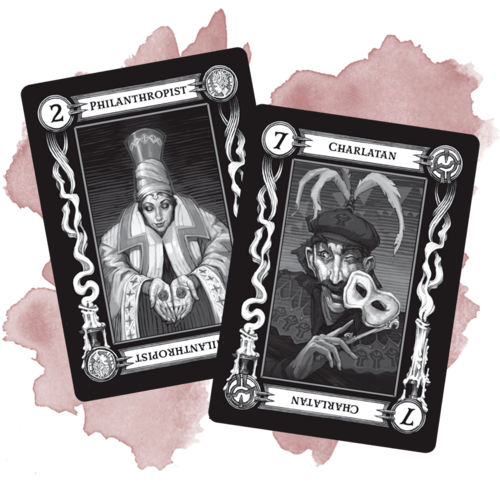 The College of Spirits offers much in the way of versatility and flavor, along with a healthy dose of randomness that will keep play interesting. Being able to cast Guidance at range is a fantastic means of supporting party members, and Tales from Beyond offers myriad opportunities for players to collaborate with their Dungeon Master on the appearance of a tale’s effect. For more flexibility, bards can even start the adventuring day by rolling on the Spirit Tales table and holding onto the rolled effect until they complete a short rest.
The College of Spirits offers much in the way of versatility and flavor, along with a healthy dose of randomness that will keep play interesting. Being able to cast Guidance at range is a fantastic means of supporting party members, and Tales from Beyond offers myriad opportunities for players to collaborate with their Dungeon Master on the appearance of a tale’s effect. For more flexibility, bards can even start the adventuring day by rolling on the Spirit Tales table and holding onto the rolled effect until they complete a short rest.
Spirit Session lets you access magic that you might otherwise skip when choosing spells. For instance, you can temporarily pick up spells such as Identify and Locate Object when it would benefit you. Your selection of spells that restore hit points is severely limited, but you do gain access to Revivify, which is a stellar option when you're anticipating combat.
Cons
Although Tales from Beyond has some great effects, the random nature of the Spirit Tales table might be off-putting to some players. The range of 30 feet could also require bards to wander closer to the fight in order to use each tale’s effect. Keep in mind, Bardic Inspiration has a range of 60 feet.
The big issue with the College of Spirits subclass, however, lies in the 6th-level Spiritual Focus feature. It specifies that you can only add a d6 to a spell that is cast through the focus. This means the spell must require material components. Spells such as Vicious Mockery and Healing Word won't benefit from this subclass feature as they only require verbal components.
Meet Knee-Knee, the Vistani-trained violinist
In the center of the misty forest crossroads was a campfire, bordered on all sides by brightly decorated wagons and dancing groups of traveling folk. These were the Vistani, and as they undulated their bodies to the tunes of lutes, tambourines, and violins, one figure seemed to stand out from the rest. Upon closer inspection, this figure wasn’t even human. It was a kenku, dressed in colorful Vistani garb, playing in sync with her companions.
Suddenly, the melody of the campfire took on a mysterious, dissonant tone. The kenku amplified this with several shrill vibrations of her violin strings, and as she did so, her pupils rolled backwards. A sinister voice emerged from her beak, telling the saga of a long-forgotten phantom. For a moment, it seemed as if this was no mere forest clearing, but a meeting ground for souls from the Ethereal Plane.
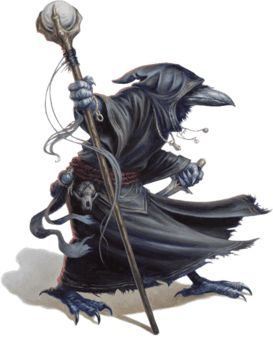 Knee-Knee is a chaotic neutral kenku and former burglar who got her name from the scars on her knees, which she obtained after taking a nasty fall during a getaway. Her life of crime came to an end when she tried stealing an instrument from a group of traveling Vistani. She was caught, but to her surprise the travelers welcomed her into their group, remarking that she reminded them of wereravens.
Knee-Knee is a chaotic neutral kenku and former burglar who got her name from the scars on her knees, which she obtained after taking a nasty fall during a getaway. Her life of crime came to an end when she tried stealing an instrument from a group of traveling Vistani. She was caught, but to her surprise the travelers welcomed her into their group, remarking that she reminded them of wereravens.
Knee-Knee found that the group of Vistani were kind, and that her Mimicry made her a talented musician. Eventually, a Vistani bard gifted Knee-Knee the instrument she had sought to steal. They told her it was called a violin. Enamored by the instrument because it made a high-pitched sound that reminded her of her name, Knee-Knee could soon emulate dozens of tunes merely by observing others play the violin. She also learned tales from spirits that she and her newfound family encountered during trips into a realm known as the Shadowfell. Before long, Knee-Knee made it her goal to collect as many sounds and stories as possible — from both the living and the nonliving.
Playing Knee-Knee
Knee-Knee is a chaotic neutral bard with the Criminal background. Her highest ability scores are in Charisma and Dexterity, while her Strength is below average. She has proficiency and Expertise in the following skills:
- Acrobatics
- Deception
- Perception
- Performance (Expertise)
- Persuasion
- Sleight of Hand
- Stealth (Expertise)
Due to her Mimicry and fondness for sounds, Knee-Knee favors spells with verbal components, such as Message, Vicious Mockery, Dissonant Whispers, and Healing Word. Magic Mouth is also one of her personal favorites, since the kenku derives great delight from transmitting the sounds she collects from various inanimate objects.
The stories that Knee-Knee’s adoptive Vistani family tell her of Shadowfell ghosts can be used to flavor the College of Spirits' Tales from Beyond feature. Knee-Knee also has plenty of volunteers for her daily Spirit Session, allowing her to access circumstantial spells that can aid others. For spells requiring material components, Knee-Knee will use a Vistani tarokka deck as her Spiritual Focus.
Considering her relationship with the only group that navigates the Mists between the Shadowfell’s Domains of Dread, Knee-Knee can make for an excellent companion in any party.
Sing to the Mists
Knee-knee is but one example character you can build as a College of Spirits bard. If you’ve ever been drawn to the mournful sound of minor chords or dreamed of changing the tide of battle with nightmarish medleys, look no further than this subclass. Just be wary of the spirits that speak through you!
Van Richten's Guide to Ravenloft is available to purchase on D&D Beyond! It offers two new subclasses, lineages, all-new monsters, and more! Master-tier subscribers can share content they purchase in the marketplace with players in their campaigns.
Jeremy Blum (@PixelGrotto) is a journalist, gaming blogger, comic book aficionado, and fan of all forms of storytelling who rolled his first polyhedral dice while living in Hong Kong in 2017. Since then, he's never looked back and loves roleplaying games for the chance to tell the tales that have been swirling in his head since childhood.








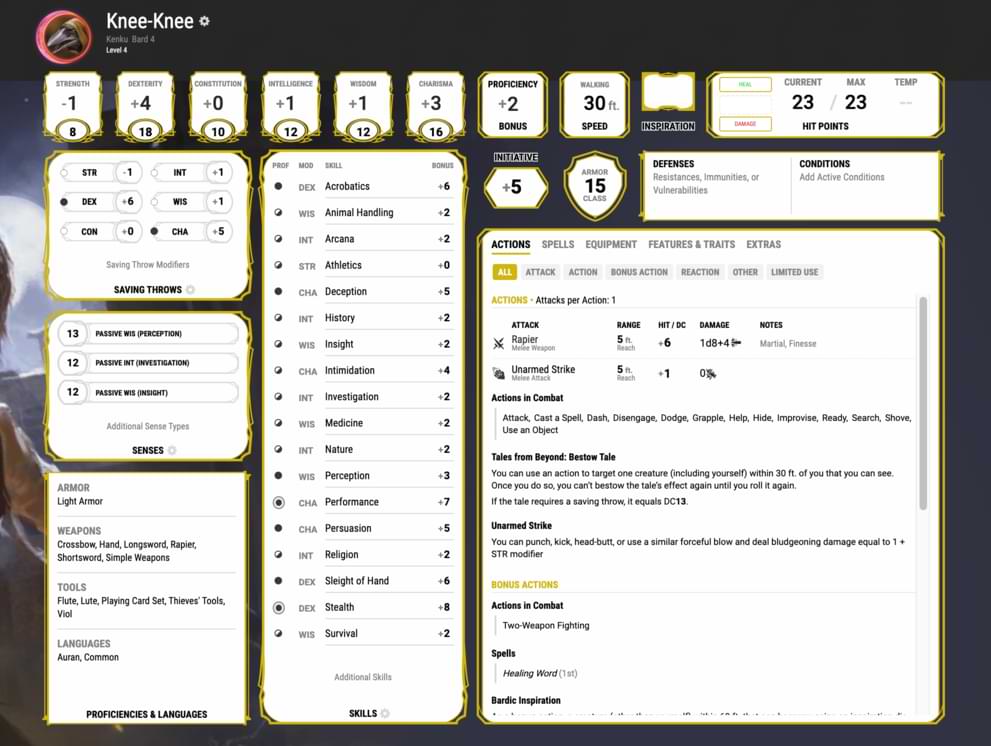
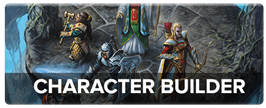
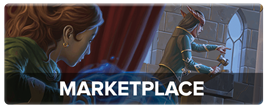
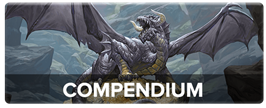
-
View User Profile
-
Send Message
Posted May 8, 2021It appeared in the Sword Coast Adventurer's Guide only because that was the latest publication at the time. It specifically mentions Vecna and Fistandantalus as patrons, neither of whom are natives of the Realms. The warlock's patron didn't have to specifically be undead, and many of Ravenloft's Darklords aren't.
It would also mean that Raistlin Majere was the very first multi-classed warlock. His side quest for Fistandantilus' spellbook in Xak-Tsaroth is even a perfect blueprint for a warlock Pact of the Tome quest (and also a perfect example of a "gimme" at the end, when either the player or the DM realize they forgot all about it!).
Constantly inventing new OP subclasses is a bad habit or WotC developers, and it's becoming even worse than all the ridiculous "Prestige Classes" of 3rd Edition. It becomes less and less about role playing, and more about how to get characters cool new Mary-Sue powers. Eventually, good DMs will have to start restricting subclasses for the sake of game balance. Once that starts to happen, you can bet that an even more broken 6e will soon follow.
-
View User Profile
-
Send Message
Posted May 8, 2021I started restricting classes and species a long time ago, since most of them are OP. This new Undead subclass is NPC only in my campaign.
-
View User Profile
-
Send Message
Posted May 8, 2021This is sick as frick... with mortal husk you can just run into a group of enemy's and nuke them and come back like very little happened!
-
View User Profile
-
Send Message
Posted May 9, 2021Nope. You will have to first be reduced to 0 HP. Then, if your 2d10 + lvl damage didn't kill the enemies (it probably won't at when you get it at 10th lvl), you are left there on 1 HP, exhausted, and will probably die almost immediately.
Don't get me wrong, it is a great ability, but it is far more of a "get me out of here" type ability for if you get cornered, than something you should actively try and activate.
-
View User Profile
-
Send Message
Posted May 9, 2021Time for the bard to sit around, rolling d6s until he heals everyone back to full heal infinitely!
I'm not a fan of the spirits bard. I feel like it takes 2 distinct concepts and tries to clumsily mash them together. I was looking forward to a neat, spiritualist medium-type bard.. instead it's been frankensteined with a bunch of "Storyteller" type bard. In fact, it almost entirely loses the "Spiritualist/medium" aesthetic to the storyteller one.
As for Undead... needs some balancing. Especially to that fear effect. Free fear every turn while not sacrificing any damage? Not sure how well the rest of it balances out.
-
View User Profile
-
Send Message
Posted May 10, 2021It does get old.
The first couple combat/ sprit sessions are fun, but after awhile, no1 wants to sit and listen.
-
View User Profile
-
Send Message
Posted May 10, 2021grim,gritty i like it
-
View User Profile
-
Send Message
Posted May 10, 2021Having run the Undead Warlock in a few on my campaigns already, it really isn't as overpowered as people seem to think. It's a bit stronger, sure, but it's nothing game breaking. Warlocks are still the limited squishy casters that don't have the best AC. Undead Warlock is really centered around the Form of Dread, and my players have found that if they use it every combat they quickly run out of uses. Not only that, but there are a lot of creatures that are immune to fear or resistant/immune to necrotic damage. Having to be in FoD and changing the damage type to a more commonly resisted one, just to gain an extra damage die, can be very penalizing. By the time they even get Grave Touched, the party is already up against encounters that they can't just burst through. Too much attention is centered around the first two features that people don't even bother to actually examine the full subclass.
For instance, Mortal Husk is great, but it oftentimes goes unused because allies will get caught up in the blast. Blowing up in mandatory for coming back with 1 hit point. On that note, teetering at 1 hit point against a creature with multi-attacks or just multiple creatures in general proved to be a more common occurrence if the warlock chose to activate their ability.
Finally, using spirit projection meant that concentration spells could not be used. Since the feature required concentration, it was often times broken or warlocks opted for a concentration spell that they could use multiple times a day.
The bottom line is, the Undead Warlock has good things going for it that aren't nearly as overpowered as people think. The features balance themselves out, and depending on the campaign, they might not even have a noticeable impact on the game. While everyone has a right to ban content at their tables, I urge people to seriously weigh the pros and cons before deeming something broken, busted, unbalanced, etc. It's a good way to challenge your creativity and bring another source of enjoyment to your games. That being said, actually playtesting material helps get a better feel for how it runs. Don't knock it till you try it~.
-
View User Profile
-
Send Message
Posted May 11, 2021I don't believe the con regarding the spell casting focus is right, pretty sure the feature should work as long as you have the focus while spell casting. Look at the Artificer-Alchemist's alchemical savant feature for example, it gives a bonus to rolls of certain damage types as well as healing when cast through your alchemist supplies, but all the healing spells they can learn lack the material component, which would make the feature useless.
-
View User Profile
-
Send Message
Posted May 11, 2021I've heard about some of the changes through the people who have snagged a copy of the book; and it looks like they've made very minor (yet very much improved) tweaks to the mechanics.
"College of Spirits" got some adjustments to their "Tales from Beyond" feature...firstly, they sort of changed the naming style for a few of them: they don't limit the "spirit" to a certain type of monster, for instance.
The "Fey" became "Tale of the Beguiler", for example...and I like this very much, as it means that you can freely re-flavor that effect to any sort of "charming" presence...a celestial, a vampire, an Infernal succubus...whatever.
You could do that, anyway...but this is sort of like an official signal to do so.
Going off of that...they also made that particular effect not a "charm" effect...but rather an immobilizing effect.
For a subclass that has random effects, it's nice to know that particular one won't be limited when facing enemies with immunity to charm.
"Spirit Session" is gaining some appreciation from me...chiefly for the access to some of the more "robust" necromancy spells..."Enervation", "Danse Macabre" or "Shadow of Moil"...
The capstone even takes a page from the Wild Magic Barbarian...instead of infinite uses of lower-level effects, you get to roll your inspiration die twice, and pick from the whole list...and if you roll doubles, you get to pick whatever you want. Nice.
Undead Warlocks actually don't get too many changes, at all...except for: "Grave-Touched" no longer stacks that damage to absurd levels (it limits the bonus necrotic damage to once per turn)...and the "Mortal Husk" explosion no longer harms friendlies in your area-of-effect. Nice.
-
View User Profile
-
Send Message
Posted May 13, 2021I am so excited for this to come out, the anticipation is killing me!
-
View User Profile
-
Send Message
Posted May 13, 2021Just in terms of Roleplaying... the new Bard class is just cartoony silly. Exactly how much of a story can YOU tell in less than 6 seconds - the time the ability takes to use during combat. I just tried and I got out about 1.5 sentences. Not much of a story! I love it when my players role play their bards (they get IP if done well), but that would just be impossible. These are the kinds of abilities that break the 4th wall as we say in film. They wreck the illusion of reality and pull players out of the story and into their heads. I think Wizards could have done way better.
-
View User Profile
-
Send Message
Posted May 15, 2021Am I the only one who thinks Shakan Kain was just a reference to Chaka Khan lmao
-
View User Profile
-
Send Message
Posted May 15, 2021I’d shorten it to a single phrase...something that evokes the “moment” in the story; not so much the story itself.
”The duelist struck; fast and true.”
”The brute bellowed; and they felt their bones rattle.”
”No matter where they hid; the avenger would find them.”
”Bold of heart & fleet of foot, was the traveler.”
...etc.
-
View User Profile
-
Send Message
Posted May 15, 2021That was a coincidence, though maybe I'll design a Chaka Khan-inspired character in the future :P
-
View User Profile
-
Send Message
Posted May 16, 2021well, the undying is a very under powered warlock subclass. but i thinks its power level is actually slightly below the HexBalde
-
View User Profile
-
Send Message
Posted May 21, 2021For anyone who saw the older version of this article: We're breaking the original article in two and updating them for Van Richten's release. That's why you'll see the original comments here.
-
View User Profile
-
Send Message
Posted May 22, 2021I like how this article mentions using Inflict Wounds with the spiritual focus to deal an extra d6, but the next paragraph details why that wouldn't work...
-
View User Profile
-
Send Message
Posted May 22, 2021WotC really needs to address this. The only bard healing spell that has a material component is Regenerate (a 7th level spell). The damage options are pretty sparse too. So they either messed up by making this feature basically worthless due to how limited material spells are for bards, or they messed up by throwing in flavor text that people are reading as a significant mechanical limitation.
Either way, WOTC screwed up here. They need to address it.
-
View User Profile
-
Send Message
Posted May 22, 2021Slight discrepancy re: Spiritual Focus
"If you need to deal more damage, you can learn a spell such as Inflict Wounds [[Components: V, S]], which synergizes with Spiritual Focus to deal an extra 1d6 of damage."
"The big issue with the College of Spirits subclass, however, lies in the 6th-level Spiritual Focus feature. It specifies that you can only add a d6 to a spell that is cast through the focus. This means the spell must require material components."